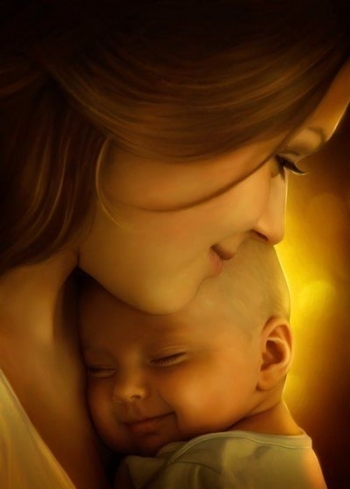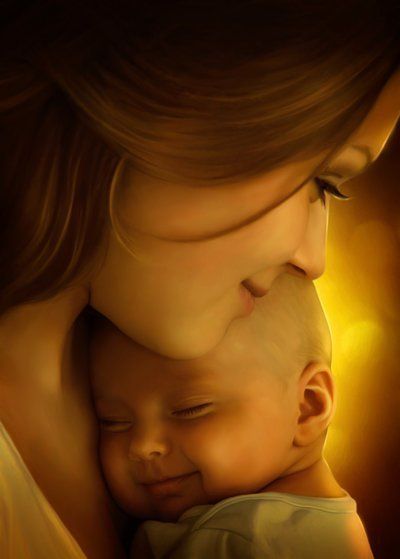
.png) Dr. Pauly Mathew Muricken
Dr. Pauly Mathew Muricken

On the second Sunday in May, people across the world celebrate Mother’s Day -- an extra special day to appreciate mothers and mother figures including grandmothers, great-grandmothers, stepmothers and foster mothers. It is also an opportunity to recognize maternal bonds in general and the positive contributions that mothers make to their families and society.
Origins of the event
The tradition of celebrating Mother’s Day began as mothers supporting world peace, but over time it has become a celebration of the hard work that mothers do every day in our lives. The origins of Mother’s Day are attributed to Anna Jarvis, an American woman who introduced the concept by arranging a private Mother’s Day celebration in memory of her mother, Ann Jarvis, on May 10, 1908 in Grafton, West Virginia. Her mother was a raw model and was instrumental in organizing “Mother’s Day Work Clubs” in the area where she lived to improve the health and hygiene of the local inhabitants.
The celebration was arranged by Anna Jarvis on her mother’s death anniversary day. It was unique and novel as it was a thanksgiving service of worship held at Andrews Methodist Episcopal Church, Grafton. The ceremony was attended by 407 children and their mothers. They selected her mother’s favorite flower, the white carnation, as the day’s official emblem. Since then, it has become a popular observance across the globe and among different societies and traditions. The Church where the ceremony was held has now become the International Mother’s Day Shrine and designated as a historic landmark in United States.
Mother’s Day is not merely an occasion to exchange cards or gifts. Much more than that, it is a moment to acknowledge mother’s role as a walking miracle. The influence of a mother in the lives of her children is beyond calculation. She is the first friend, the best friend and the forever friend. Oliver Wendell Holmes, an American Poet once said: “Youth fades; love droops; the leaves of friendship fall; A Mother’s secret hope outlives them all”.
More than a fresh flower
The ex
Mothers are always right and tell the truth. They are our root, our foundation. They plant the seed that base our life on and from that we gain the ability to achieve in our life. They possess a power beyond that of a king on his throne. Abraham Lincoln graciously admitted the role that his illustrious mother had in his life, “All that I am, or ever hope to be, I owe to my angel Mother”.
Dignity of Motherhood
Motherhood and the right to dignity as a mother have to be protected by the society and State. Human dignity is a constitutional value and constitutional right. State and its agencies cannot discriminate against a woman on account of her compelling family care giving responsibilities. No rule or regulation can stand in the way of recognizing their rights.
Our culture, tradition, civilization and practices venerate motherhood. Constitution of India proclaims and protects the status, dignity and self-respect of motherhood. Dignity as a right available to a mother was explained by the Supreme Court in C.B. Muthamma (1979), Air India (1981), Suchitra Sreevastava (2009) cases decided by it, to name but a few.
The problems faced by working mothers need a systematic evaluation from a humanistic perspective. The inconvenience of the employer is not an excuse against claim for protection of her rights. Employer should recognize this and protect her personhood as a mother. She cannot be compelled to surrender motherhood for fear of loss of employment. Mother’s role in taking care of the child is indeed an honour and she enjoys a separate status because of her position in respect of the child. Respecting motherhood therefore means respecting womanhood and childhood.
Mother of Civilization
Family is a social Institution and it is the first model of political society. Women constitute the centre of family. Mother is the ‘light’ of the family. This means that power of motherhood should be recognized. Motherhood is not just birthing, but involves the process of nurturance. Mothers have been projected as Goddess in all cultures.
Mother’s body is seen as national identity and mother is invoked as the metaphor for the nation. Gandhiji openly expressed in a letter addressed to Dr. Julian Huxley, Director General of UNESCO, in May 1947 the role played by his illiterate but wise mother who taught him that all rights to be deserved and preserved came from duty well done. It is rather unfortunate that motherhood happens to be interrogated many a time.
Distressed Single Mothers
If a woman feels that she is nothing without the support of the man, blame the system, as it points to the failure of the system. This occasion takes us to have retrospection on the miserable and pitiable conditions faced by single mothers living in distressed state. It is high time for the Government to evolve welfare schemes to support single mothers.
In a country where the people worship Goddess, in the land where people have been taught about woman and share the belief that gods abide where women are worshipped and all actions go futile where they are dishonored, it is rather strange that our society perceives and treats single mothers quite differently.
Often, they are denied of financial and other social support and forced to live in isolation, despair, sub-human conditions with emotional challenges haunting them. The isolation faced by single mothers is the hurdle created by the society.
Changing family dynamics
The strength of motherhood at times is greater than natural laws. She is the first teacher and the heartbeat in the home. It is said the best place to cry is on a mother’s arms. Changing family dynamics show reluctance in accepting mother’s rights as human rights.
Commenting on the key role played by mothers to change social norms regarding masculinity, Office of the High Commissioner for Human Rights of the United Nations Organization stated: “Gender equality and the elimination of discrimination against women begins in the home, in the family. Social cohesion and gender equality start with the transmission of fundamental values upon which human beings construct themselves. And mothers are best placed for the transmission of equality values to their children, already at a very young age”.
Mothers must be heard and respected, informed and supported. Then they become key partners and changemakers. They are resources for society, vectors of culture, values and education thereby becoming the link to future generations.
Article 25 of the UDHR states that motherhood and childhood are entitled to special care and assistance. Identical protective provision is seen engrafted in ILO’s Maternity Protection Convention. Improving maternal health was part of the Millennium Developmental Goals. ICCPR, ICESCR, Convention on the Elimination of All Forms of Discrimination against Women, Convention on the Rights of the Child also envisage provisions to ensure appropriate pre-natal and post-natal care for mothers.
Mothers are rights-bearing citizens and human beings. They will never gain full dignity until their human rights are respected and protected. We must acknowledge them as humans, born free and equal in dignity and rights, with a chance to exercise their infinitely varied gifts in infinitely varied ways.
Though they are the primary caretakers for children and elderly, much of their work is not noticed and valued-not by economists, historians, popular culture and government leaders, but even within the home. Their roles are perceived as just limited to child bearing and rearing, work-life balance. There is thus the need for a new political discourse calling for mothers’ human rights.
(The writer is a prominent lawyer, an acclaimed writer and a distinguished academician based in Kochi)